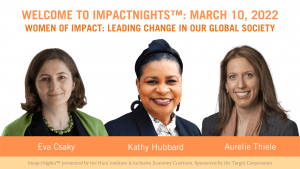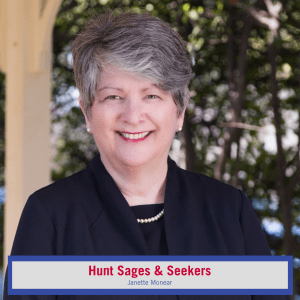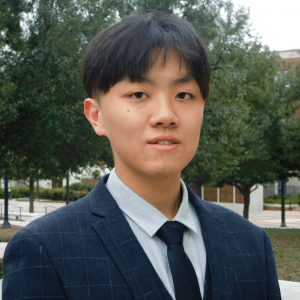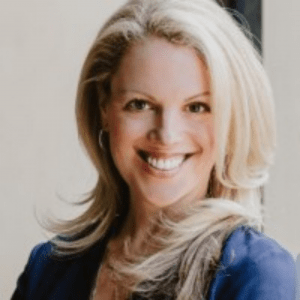Even before 2020, before anyone heard of something called “COVID-19,” the world was already facing serious food challenges. But today, with long-term economic uncertainty due to the pandemic, rising inflation, the war in Ukraine, and climate change, the global food system may be nearing a breaking point.
To discuss the crisis facing our globe, Hunt Institute convened three panels of experts on April 14 for its latest ImpactNights™ event, “Food Systems in Urgent Need of Transformation.” The event featured Hunt Institute representatives and Fellows, business executives, medical experts, non-profit leaders, and a City of Dallas coordinator.
The common theme that linked the three panels was the critical importance of building trust with and among all stakeholders – whether it be the farmers that grow crops, the financial institutions that serve the farmers, or those who distribute the products to the market. Panelists also discussed the vital role of health care providers who develop bonds with communities and patients, especially in underserved areas.
“With 3.3 to 3.6 billion people in the world highly vulnerable to climate change, most of them smallholder farmers and vulnerable groups, the urgency cannot be overstated,” said Dr. Eva Csaky, Executive Director of Hunt Institute. “This is a crisis of food production, food security, and livelihoods, and the sharing of global experiences and best practices must inform urgent evidence-based climate action in vulnerable communities around the world.”
Participating in the first panel were Clara Ford, a Hunt Institute Fellow who is working on a community-driven, climate-smart rural development model; Miguel J. Martins, a Hunt Institute Fellow who is working with climate-smart value chains with a focus on mycelium; and Mohan Seneviratne, a Hunt Institute Fellow who is helping build resilience and improve livelihoods of smallholder farmers in Sri Lanka.
“If we’re talking about global value chains, we need to talk with the farmers,” said Seneviratne. “If there are no farmers, there are no cover crops. Sri Lanka, like all emerging countries, is primarily agricultural. If you want to alleviate poverty, we need to address 80% of the people, and that’s agriculture.”
Clara Ford, the founder of Kijiji Innovative Solutions in Tanzania, teaches local farmers how to grow more crops to sell, and thus sustain themselves and provide a better quality of life. “In a small village of about 1000 to 5000 people, the economy is agricultural productivity, but somebody coming from America to Tanzania and telling them this is what you need to do – that is something I figured wouldn’t work.”
To address the issue, Ford created a local center for the village to bring people together, to invest in locals first, and to allow them to start the conversation as peers and stakeholders. She hopes her idea – a center to gather, learn, and take action – can be scaled to other villages as a community development approach.
The second session, led by Corrie Harris, Assistant Director of Hunt Institute, featured Felisa Conner and Dorothy Hopkins, VP of Operations and President & CEO, respectively, of Frazier Revitalization, Inc.; Rabekha Siebert, Urban Agriculture Coordinator of the City of Dallas; Matt Smith, Sr. Director of PepsiCo’s Food for Good; and Meghna Tare, a Hunt Institute Fellow, Chief Sustainability Officer of UT Arlington, and Founder of the North Texas Food Alliance.
“When you’re working in underserved communities, you should never do what they should do,” said Felisa Conner, speaking on the session’s topic of bringing affordable healthy food to South Dallas. “When you’re having events, the idea is that you draw people so you can develop relationships. That’s what your program is built from. That’s what helps people stick together, to see them work through a problem and to help with solutions.”
The final session on food system needs was led by Alex Radunsky, a Hunt Institute Fellow and Postdoc Research Fellow at UT Southwestern. Participants included Sandi Pruitt, Associate Professor in the Department of Population and Data Sciences at UT Southwestern, and Milette Siler, Community Dietitian and Culinary Lead Instructor at the Moncrief Cancer Institute at UT Southwestern.
Attendees Nadia Zrelli Ben Hamida and Haddijatou Njie also shared valuable information about the food security crisis in Tunisia and the challenges of scaling climate-smart solutions in The Gambia.
Panelists agreed that technology has a central role to play in fixing and improving the world’s food systems, but that governance, infrastructure, education, training, and access to financing and markets must be prioritized for the good of all stakeholders and the people most at risk of food insecurity.
Follow us on Eventbrite to stay informed when the next ImpactNights™ session is scheduled.
Written By: Chris Kelley
To read more about the Hunt Institute’s work to develop future-focused solutions to some of the world’s biggest problems, please click here. For the latest news on the Hunt Institute, follow our social media accounts on LinkedIn. We invite you to listen to our Podcast called Sages & Seekers. If you are considering engaging with the Institute, you can donate, or sign-up for our newsletter by emailing huntinstitute@smu.edu










 In this episode of The Hunt Institute’s Sages & Seekers Podcast, Janette Monear explains the vital relationship between the environment and community and how we can work to save it.
In this episode of The Hunt Institute’s Sages & Seekers Podcast, Janette Monear explains the vital relationship between the environment and community and how we can work to save it.
 In this episode of The Hunt Institute Sages & Seekers Podcast, Clyde Valentín tells us how creativity can be used to tell stories and empower people to make their own culture.
In this episode of The Hunt Institute Sages & Seekers Podcast, Clyde Valentín tells us how creativity can be used to tell stories and empower people to make their own culture.
